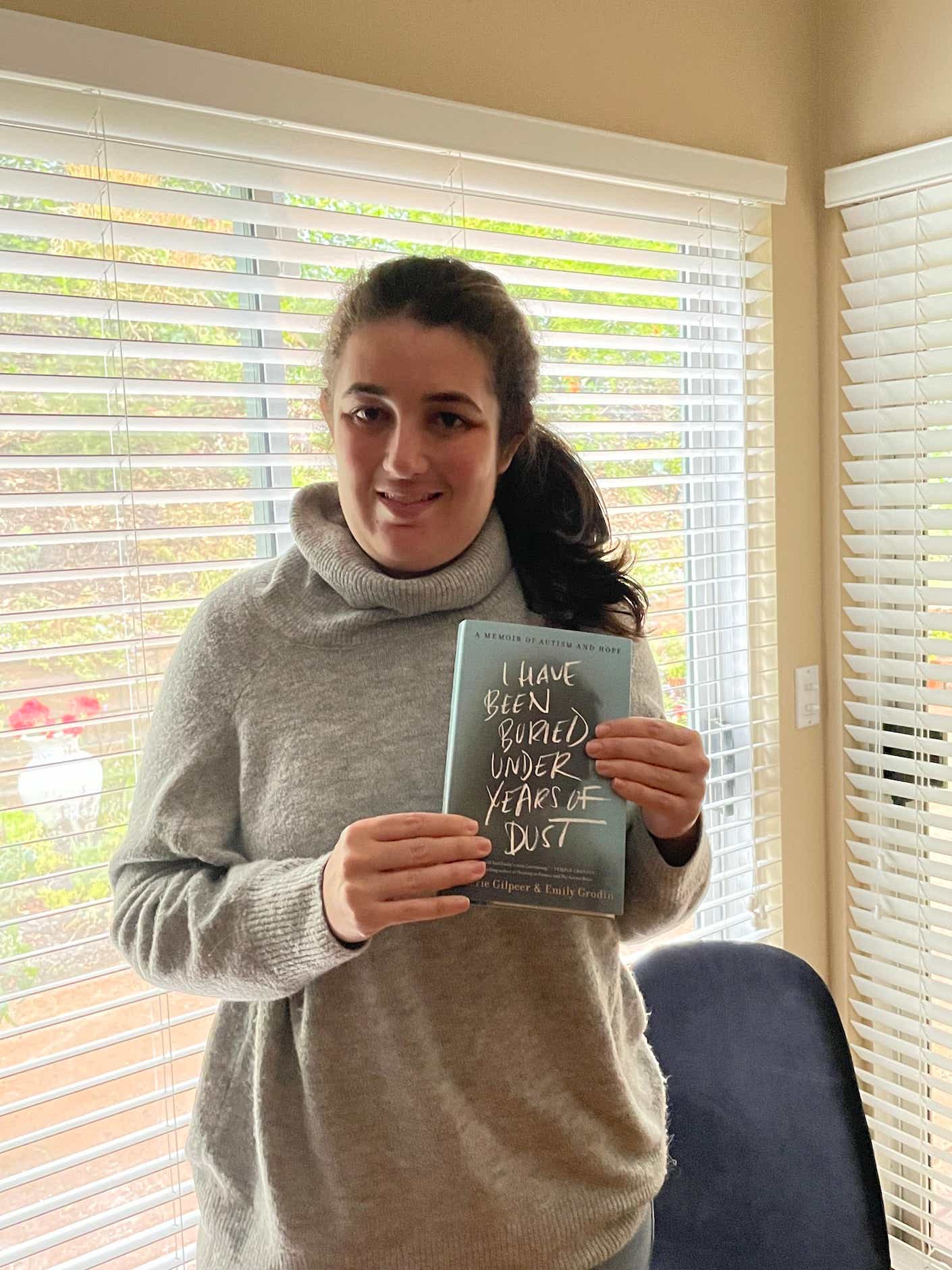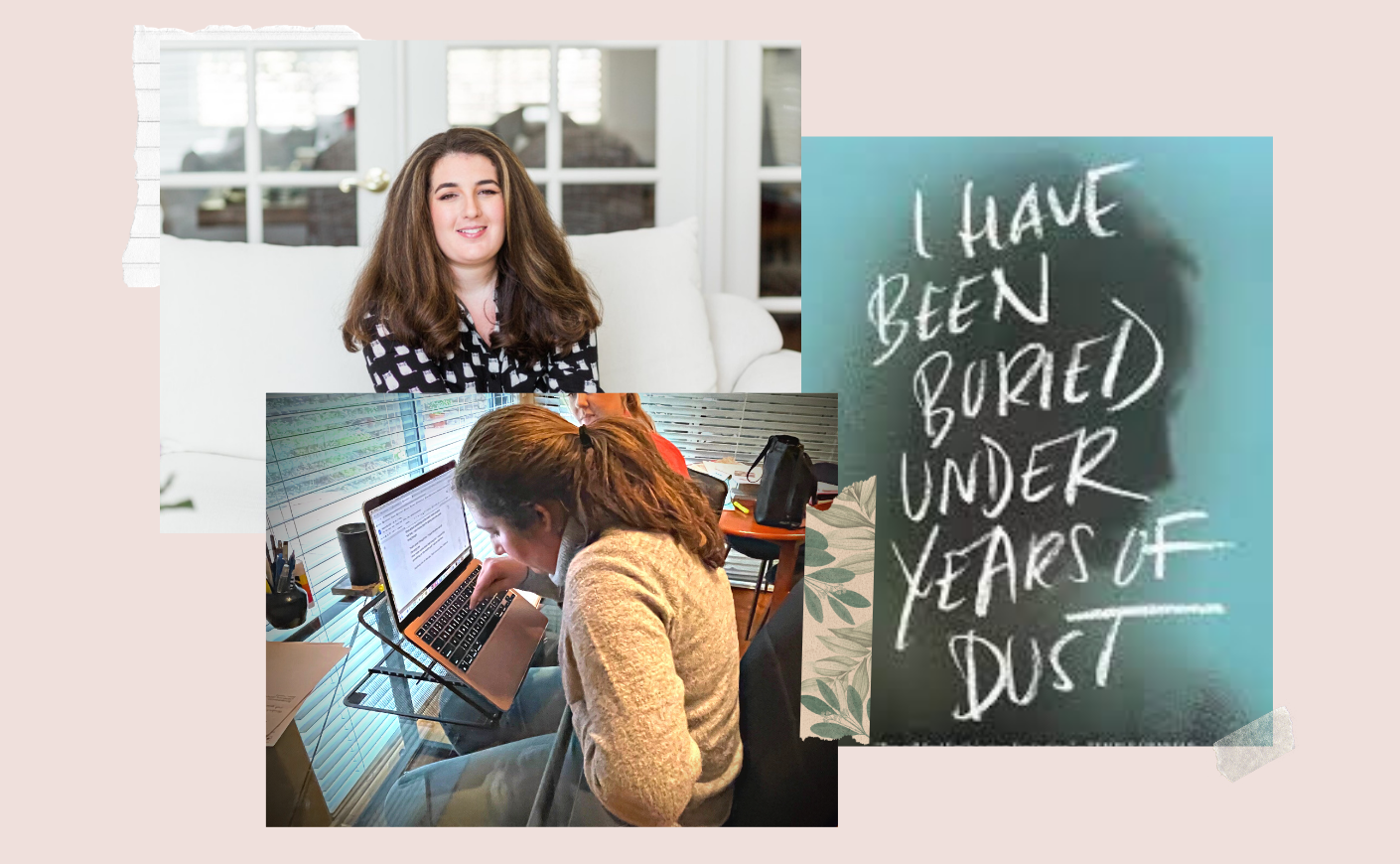I'm a 30-year-old woman, a published author, poet, dedicated student, and passionate advocate in my community. I'm also autistic and non-speaking. For the first 25 years of my life, I was without a means of communication — I wrote no essays and had very minimal speech. It would be an understatement to say that my path has been less than traditional.
Throughout my life, I’ve spent many years in therapy. Hours and days that turned into months and years all dedicated to speaking: Speech therapy, behavioral therapy, programs to strengthen brain function. I did it all. But despite every effort, I couldn’t change the fact that I would never experience what’s considered a typical coming-of-age.
For all of grade school, I had an IEP (Individualized Education Plan). The way I think about it now, this plan detailed what my educators expected of me, and what they did not expect from me. An IEP is essentially a tool used to ensure that a student receives the services they need. To secure those services, parents and teachers must discuss the student's specific challenges and limitations. Part of this plan involves writing out very specific goals, like: “Emily will verbally respond with ‘yes’ or ‘no’ 5 times in one day when asked a question by a teacher.” These goals felt small, like the school was saying that anything beyond them was out of the realm of possibility for me.
As hard as I worked on the goals surrounding speech, my verbal communication did not reach the potential of what was hoped for me. Time proved that speech would never be my main form of communication, but that didn't mean I'd never be able to communicate.
Five years ago, my life drastically changed. I had been working with someone for a few months who introduced me to typing. To be honest, I was still determined to work on my verbal communication, and typing felt like a distraction from that. But that began to change following an international flight with my parents. On that packed airplane, after so many hours in the air, I began to suffer an extreme sense of overload. I was sweating, felt stuck, and just could not take it anymore. I screamed. I flailed. And without a way to explain what was happening, I was not able to control my reaction. I suddenly realized how essential typing could be to express myself in a way that was more reflective of the person I wanted to be. And so I learned how to type on a keyboard. Not the quick, two-handed typing you’re probably used to. Instead, I learned how to type with one finger, to slowly spell out words and sentences that could express my wants and wishes, my likes and dislikes.
It was a release for me, an unlocking of emotions and ideas that had been stuck. I felt validation from the reactions around me, of course. But it was also my own confirmation that my feelings could exist outside of my body. Eventually, I would type about my life growing up as a girl on the autism spectrum. All of those words and thoughts and feelings poured out of me, finally, after being trapped for so many years. These days I am practicing typing with both hands. I continue to push myself and my abilities when it comes to how I communicate.
One of the first things I typed was, “I have been buried under years of dust.” That sentence became the title for the memoir I co-authored with my mother, published in 2021. I Have Been Buried Under Years of Dust was released into the world as “a memoir of autism and hope,” featuring a collection of my poetry.

For the first time, the spotlight was on what I was saying, instead of what I wasn’t saying.
Being able to communicate through typing has changed my life in every way imaginable. Writing helped me to heal and connect. Now I can talk with the people around me, be a college student, socialize with friends, share my ideas through writing, publish my work, dream of possible careers. Doors that were previously closed to me opened as a result.
Poetry was my first love. It gave me a way to turn darker times into pretty words. My studies quickly became another love of mine. Knowledge has become so important to me, like a badge of what I am capable of. The company that I keep has grown over the years. Then there are things like travel, dancing, hiking, and just having lunch with my friends. Things that somehow my voice has given me the confidence to do.
Now, I live a very full life, one that I have total control of. I choose how my time is spent and what classes I'll take. I decide what my social life looks like. These freedoms weren't always truly mine before I could type. But now they are. And with freedom comes responsibility. With the release of the memoir, I'm now often asked what's next for me. This freedom to choose can be daunting because for so long, others were making choices for me. While I may answer the question when it’s asked, in truth, I’m not sure what comes next. And now I'm the one asking myself what I do with this new life that communication has made possible for me.
I often feel that I'm making up for time that I lost to being non-speaking — things as simple as missed conversations and as big as not being exposed to learning opportunities that I was capable of understanding. I don’t want to miss out on any more opportunities. And I fully plan to take advantage of all that life has to offer.
Emily Grodin is an autistic young adult. In 2021 she authored a memoir with her mother, I Have Been Buried Under Years of Dust, that details her journey as a woman with non-verbal autism. She is currently studying journalism, psychology, and creative writing in college, and is a staff writer for her college newspaper. She has been recognized by the California Legislature as well as the City of Los Angeles for her contribution to the autism community.
She’s shared with us one of her poems below:
Beyond the Dust
March 1, 2021
Who am I?
Beyond name,
beyond background.
Beyond the little girl my parents remember me as,
and beyond time that has
made me into a woman.
I think of that woman now,
and all that has shaped her,
seen through the glass,
an outsider looking in
I feel proud
of the fierceness in her eyes
but also the calm that has settled
and made a home in her heart.
A storm that once raged
has since dissipated
and instead
lazy waves lap at her shores.
She has not changed at a quick glance,
for she is still the daughter,
friend,
female,
student,
that she always has been.
But everything else,
all of the static in between,
the noise and the dust,
have settled.
But this time
she has not been buried underneath.












